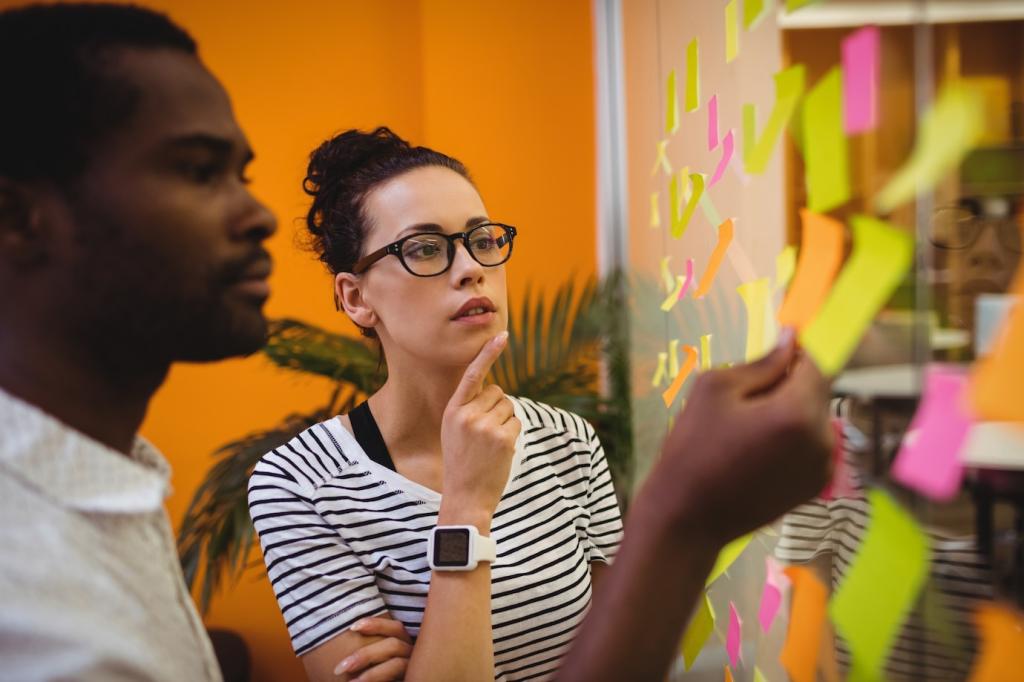Peer Collaboration for Language Exam Mastery in German
Peer collaboration has emerged as a transformative approach for mastering German language exams. In a field where communicative competence and practical understanding are crucial, engaging with peers offers an effective route to build confidence, deepen linguistic skills, and develop test-taking strategies. This web page explores the multifaceted advantages of collaborative learning, highlights successful methods, uncovers challenges and solutions, and provides guidance for creating impactful study partnerships, all designed to elevate your German exam performance.

Effective Methods for Collaborative Study
01
Role-playing is a particularly potent tool for German learners aiming for exam mastery. It involves simulating common test scenarios or real-life interactions, such as ordering food in a café or discussing hobbies, allowing learners to practice spontaneous speech, pronunciation, and listening comprehension. This method encourages participants to step outside their comfort zones and handle language in unexpected contexts, closely mirroring actual exam conditions. With immediate peer feedback, learners refine their responses in the moment. Over repeated sessions, role-play builds fluency, helps to internalize vocabulary, and significantly diminishes anxiety during real exams.
02
Another crucial collaborative method is peer-driven correction and review. In these sessions, learners exchange written essays, recorded dialogues, or mock test answers for analysis by their peers. This process not only exposes participants to different writing and speaking styles but also develops their critical analysis skills and sharpens their own awareness of common errors. Constructive, respectful feedback from others can highlight subtle inconsistencies in grammar or vocabulary that might be overlooked in isolation. This reciprocal process promotes deeper learning and provides a fresh perspective on how to address testing challenges, ultimately resulting in tighter, more accurate exam performance.
03
Advancements in technology have given rise to digital platforms that facilitate virtual language exchange among learners worldwide. These platforms allow students to connect with peers even when geographical constraints exist, enabling consistent collaborative practice outside of classroom boundaries. Video chat, instant messaging, and collaborative document editing tools support real-time conversation, instant correction, and shared resource development tailored to exam preparation. By integrating digital exchanges, German learners increase their exposure to varied accents, dialects, and expressions, enriching their language comprehension and equipping themselves for the unpredictable nature of exams.
Overcoming Challenges in Peer Collaboration
Managing Diverse Skill Levels
Diverse proficiency levels within a peer group can present difficulties, particularly if some members advance more quickly than others. However, these differences need not hinder progress. More advanced learners can take on teaching roles, explaining complex grammar concepts or nuanced vocabulary to others. This reciprocal teaching reinforces understanding for both parties. Meanwhile, beginners can offer fresh perspectives and ask questions that prompt discussion, leading to collective clarity. By embracing diversity of skill, group members build patience, adaptability, and robust communication—skills that are as valuable for exam success as linguistic knowledge itself.
Scheduling and Consistency
Coordinating regular meetings can be challenging, especially for peers balancing studies with work and personal commitments. Without consistent sessions, the effectiveness of collaborative learning diminishes. Successful groups tackle this obstacle by establishing a fixed schedule and using technology to bridge logistical gaps. Tools like shared digital calendars, group messaging apps, and video conferencing ensure meetings take place reliably, even across distances. By prioritizing regularity and upholding mutual commitments, learners maintain a steady pace of preparation, boost accountability, and sustain long-term motivation for German exam excellence.
Navigating Group Dynamics
Effective peer collaboration hinges on a positive, respectful atmosphere. Sometimes, differences in communication styles or working preferences can lead to friction and hamper progress. Tackling these issues head-on through open dialogue is crucial. All participants should contribute to setting clear goals, outlining mutual expectations, and fostering a supportive environment where constructive criticism is welcomed. Group leaders can rotate to ensure all voices are heard and responsibilities evenly distributed. Mastering group dynamics not only enhances learning outcomes but also equips participants with interpersonal skills valuable beyond the context of a German language exam.
